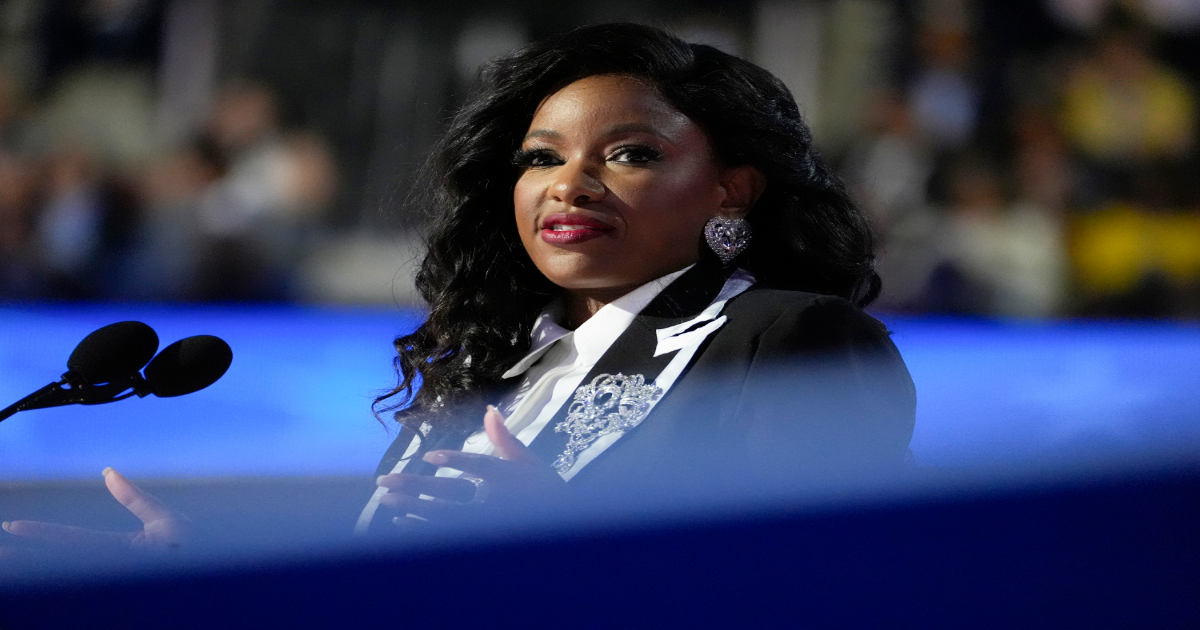Several of the nation’s major disability rights groups expressed disappointment with Rep. Jasmine Crockett (D-Texas) after she apparently mocked Texas Governor Greg Abbott’s use of a wheelchair in a speech Saturday.
But some still see Crockett as an ally, and are willing to extend her a second chance.
“Governor Abbott sometimes has policies that are harmful to people with disabilities, and that’s terrible,” said Josie Byzek, senior communications and digital experience director at the United Spinal Association. “Representative Crockett has a history of protecting the programs and rights of people with disabilities, and that’s wonderful. At the same time, the stigma is real.”
Disability rights advocates who spoke to POLITICO on Tuesday framed Crockett’s remark as a damning reflection of the current political climate — as well as a warning sign for the Democratic Party.
“If the Democrats want to be as inclusive as they claim they do and ensure that people with disabilities are actually recognized as being welcome under their political umbrella, then you have to be thoughtful about your words,” said Emily Ladau, a disability rights advocate and author. “And when Crockett made that joke, she was really punching down, and she knew that she would get a laugh.”
Crockett’s quip — which she made at a speech over the weekend — circulated widely on social media Tuesday. It drew sharp criticism from Republicans, and Rep. Randy Weber (R-Texas) said he would file a censure resolution.
“Y’all know we got Governor Hot Wheels down there. Come on now,” Crockett said at a Human Rights Campaign dinner in Los Angeles Saturday. “And the only thing hot about him is that he is a hot ass mess, honey.”
Abbott was paralyzed after a tree fell on him while on a run over 40 years ago.
Crockett initially told reporters Tuesday her statement “speaks for itself.” But she later said on X that she was not thinking about the governor’s wheelchair use when making the remark on Saturday, but “about the planes, trains, and automobiles he used to transfer migrants into communities led by Black mayors, deliberately stoking tension and fear among the most vulnerable.”
In an email to POLITICO, Crockett’s chief of staff, Kimberly McClain, said that Crockett “in no way, meant any harm toward the Governor OR meant to take lightly any medical conditions that he may have,” adding that she would “continue to advocate for the needs of our disabled neighbors.”
The governor’s team did not immediately respond to a request for comment.
“When public figures use language that mocks a person’s disability, they fuel the stigma that already keeps people with disabilities out of public office, workplaces, and other spaces where decisions are made,” Katy Neas, CEO of The Arc of the United States, said in a statement. “We can debate policies without using language that demeans an entire community.”
Some of the advocates who spoke to POLITICO argued that Crockett’s comments belied a stronger record of support for people with disabilities.
“Right now we’re in really tenuous times where you don’t want to make a foe out of someone who was otherwise a friend like Crockett clearly is,” Ladau said. But “we cannot hold one side to account and not the other.”
Chase Bearden, executive director of the Coalition of Texans with Disabilities, said the reaction to Crockett’s statement is a reminder for both sides of the political spectrum to “stop using someone’s disability as the basis of an insult.”
“A person’s disability doesn’t affect their ability to do their job, whether they’re a governor, a reporter, or an air traffic controller,” Bearden said in a statement. “Lawmakers of all stripes should spend their energy crafting and implementing policy that serves all Americans, not mudslinging.”
